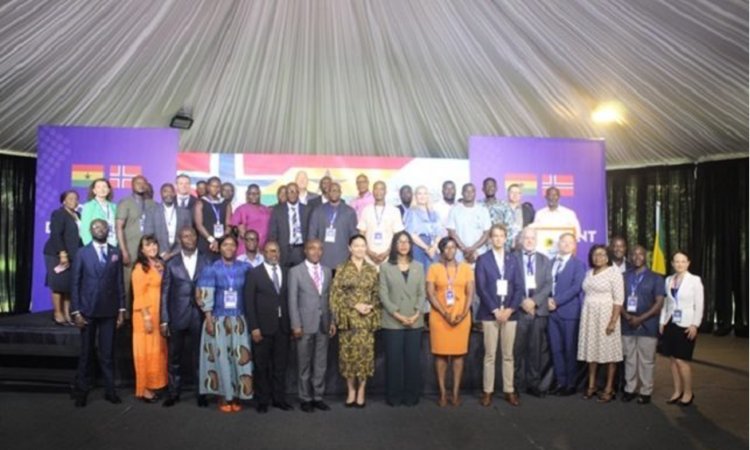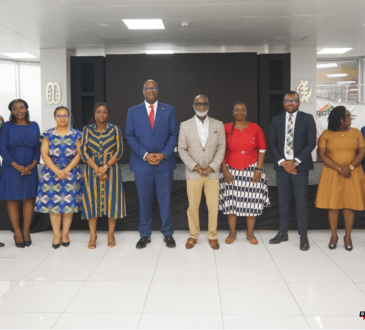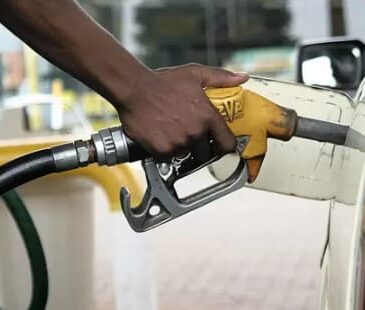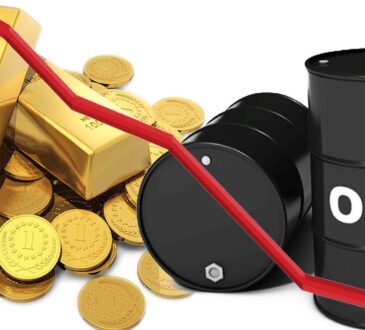
After sixteen years of technical support, institutional capacity building and assistance in the formulation of workable environmental regulatory framework that contributed significantly to the effective management of the country’s petroleum resources, the Oil for Development (OfD) programme by the Norwegian government with Ghana has come to an end.
The Oil for Development has been a centrepiece of cooperation between Ghana and Norway since 2008, prior to the later opening its embassy in Ghana.
Speaking at an event organized by the Norwegian Agency for Development Cooperation (Norad) to formally end the 16-year Oil for Development programme (OfD) partnership in Accra, Ambassador of Norway to Ghana, Ingrid Mollestad, said his country has offered support to 30 countries including Ghana in the management of their petroleum resources due to the rich experience, achievements and lessons learnt over the years.
According to her, the Ghana-Norway partnership was aimed at promoting sustainable oil management resources for economic growth and the welfare of unborn generations.
According to her, the 16 years cooperation provided Ghana with the requisite technical knowledge, development of regulatory system, health and safety and security expertise for the management of its petroleum resources whiles contributing to the building of strong and competent institutions.
She noted that despite the fact that the Oil for Development programme was coming to an end, there was still considerable scope for continuing partnership with Ghana on management of natural resources, emphasizing that both countries are coastal states and sustainable management of ocean resources was crucial for their future prosperity.
Director of Research Statistics and Information and Management at the ministry of Environment, Science, Technology and Innovation (MESTI), Cephas Adjei Mensah on behalf of the sector Minister, Ophelia Mensah Hayford said Norway supported the first phase of the programme with a grant of Norwegian Krone NOK of 40 million which started from 2010 to 2014.
According to him, a second phase of the programme was initiated between 2015 and 2019 to strengthen the country’s capacity to manage its petroleum resources in an environmentally sustainable manner.
The third and final phase which concludes this year ends the 16 year partnership with unforgettable impact on Ghana’s oil and gas sector.
Mr Adjei Mensah said the partnership has helped Ghana in its environmental management efforts, resulting in poverty reduction.
It also helped in the development of the Environmental Management Petroleum Policy for Oil and Gas Industries (EMPOGI).
This he noted contributed significantly in building institutional capacity and establishing regulatory frameworks for environmental management in Ghana’s oil and gas sector.
Director of Petroleum Directorate at the Ministry of Energy, James Yamoah oh his part said OfD helped Ghana in the establishment of a robust legal and administrative framework for her petroleum sector.
He mentioned the creation of the Petroleum Commission and the creation of a fiscal framework that ensures the country receives a fair share of petroleum revenue as some significant achievements under the OfD programme.
Stakeholders at the event including representatives from the Petroleum Commission, MESTI, Ministry of Energy and Civil Society Organisation lauded the numerous achievements chalked by Ghana the cooperation and how lessons learnt could benefit the future management of Ghana’s petroleum resources.
Background
Following the discovery of oil in commercial quantities in 2007, then Secretary General of the United Nations (UN), Busumuru Kofi Annan is on record to have placed a phone call to the Norwegian minister for Climate and Environment to offer assistance to Ghana due to the remarkable strides that country has chalked in the management of its hydrocarbon resources.
The intervention of Kofi Annan resulted in the signing of a memorandum of understanding between Ghana and the Nordic country which gladly offered to support the country resulting in the inaugural OfD in 2008.
The programme emphasised a comprehensive approach to petroleum management, encompassing not just resource extraction, but also revenue management, environmental protection, and safety considerations, with the ultimate aim of poverty reduction in developing countries.
By Christian Kpesese







